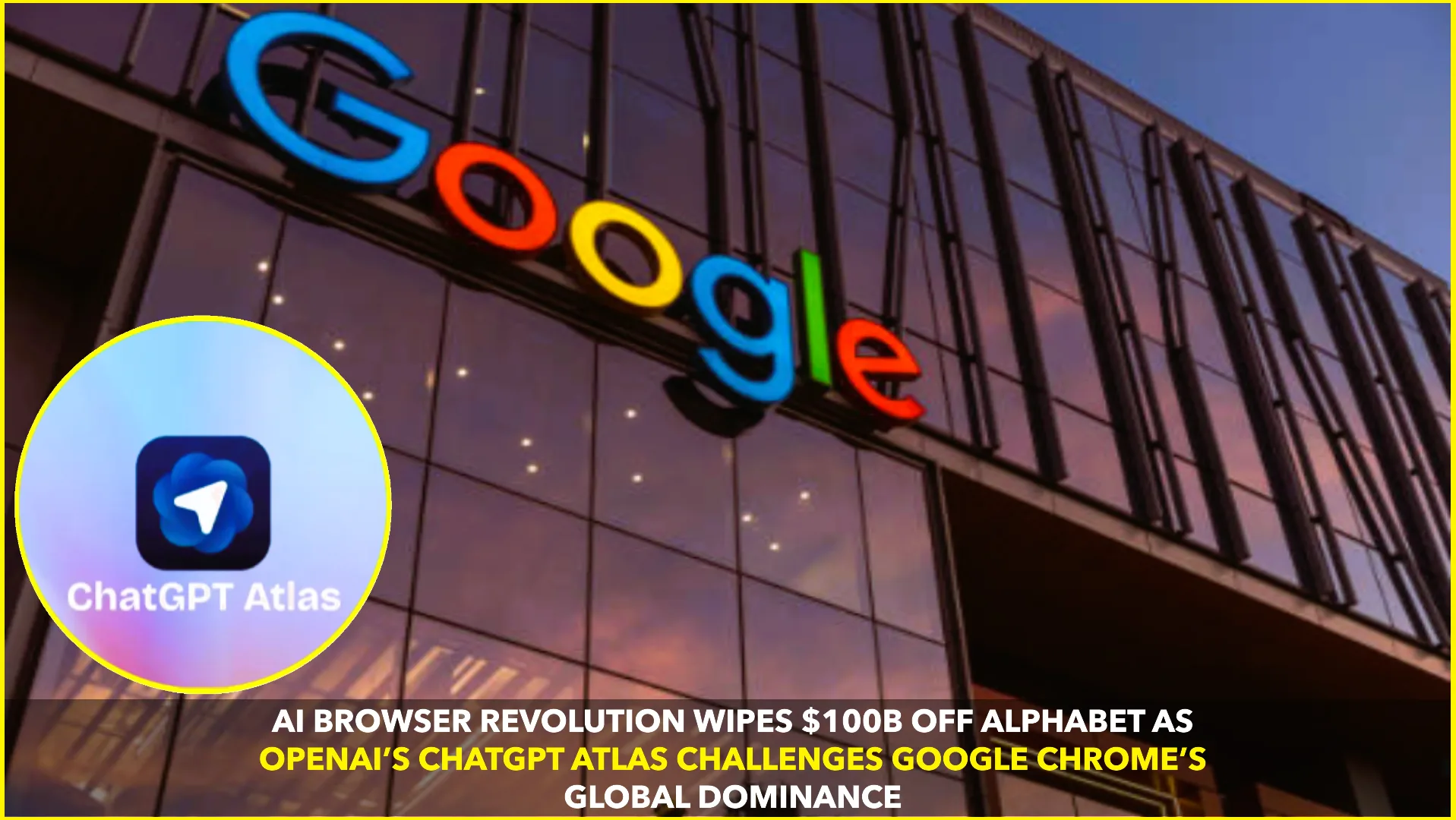A major shock rippled through global markets this week as Alphabet Inc. lost nearly $100 billion in market value within minutes of OpenAI unveiling its new browser, ChatGPT Atlas. The event marks one of the most significant shifts in the tech landscape since the dawn of Google’s dominance two decades ago.
The Launch That Shook the Web
On October 21, 2025, OpenAI announced ChatGPT Atlas, a next-generation browser that fully integrates its flagship AI assistant. The browser replaces the traditional address bar and search field with an “Ask ChatGPT” sidebar, allowing users to interact, search, and complete tasks conversationally.
According to OpenAI’s official release (openai.com), Atlas aims to “merge browsing, searching, and doing” in one seamless interface. Users can ask ChatGPT to summarize pages, compare products, or even perform online actions like booking tickets or drafting emails — all without leaving the browser.
Alphabet’s Sudden Value Crash
Investors reacted almost instantly. Shares of Alphabet Inc. plunged by roughly 5 percent, wiping nearly $100 billion from its market capitalization in just a few minutes of trading.
As reported by Reuters (reuters.com), traders viewed Atlas as the first credible threat to Google Chrome’s 72 percent global market share. The sheer potential of an AI-driven browser capable of bypassing traditional search results rattled investors who see advertising as Google’s main revenue pillar.
Why Atlas Is Different
Unlike standard browsers, Atlas isn’t just a window to the web — it’s an AI-powered control center. Users can ask questions, get summarized insights, and perform tasks without opening new tabs.
A detailed breakdown from The Times of India (timesofindia.indiatimes.com) explained that Atlas blends traditional web access with a “context-aware assistant.” This means ChatGPT remembers your ongoing browsing context — so if you’re researching destinations, it can later help book flights or hotels without restarting your query.
Market Shock and Analyst Reactions
Financial analysts immediately drew comparisons between Atlas’s impact and historic market reactions to disruptive launches, like Apple’s first iPhone or Microsoft’s Copilot rollout.
According to MarketWatch (marketwatch.com), Alphabet’s slump wasn’t just about the browser competition. Investors are increasingly worried about how AI-based browsing could eat into Google’s ad revenue, which relies on users visiting search pages filled with ads. If users get direct answers from ChatGPT instead, the clicks — and ad dollars — could vanish.
How Google Might Fight Back
Despite the panic, Alphabet isn’t sitting idle. A Hindustan Times report (hindustantimes.com) noted that Google plans to accelerate integration of its Gemini AI into Chrome and Search. The company has already tested “AI Overview” features that summarize web pages using generative AI — a move clearly designed to keep users inside Google’s ecosystem.
Still, experts believe Atlas could carve out a niche among users seeking faster, more intuitive online experiences. A report from Investing.com (investing.com) highlighted that traders view OpenAI’s browser as “the biggest existential threat yet” to Google’s twin empires — Search and Chrome.
A Shift in How People Use the Internet
The implications extend far beyond the stock market. Atlas represents a new phase of internet behavior — where asking, not searching, becomes the default. Instead of typing queries, scrolling results, and clicking through websites, users can simply ask the AI to perform the task.
TweakTown (tweaktown.com) noted that this shift could “compress the entire browsing journey” into a single interface — saving time but also disrupting the ad-driven web model that Google depends on.
Why It Matters
The $100 billion market shock to Alphabet wasn’t just about one product — it was about the future of the internet itself. If AI-driven browsing like ChatGPT Atlas becomes mainstream, traditional search engines and ad models could be rewritten overnight.
For years, Google’s dominance seemed unshakable. Now, OpenAI has reminded the world that in the AI era, even giants can stumble — and that innovation, not scale, decides who leads the next generation of the web.










